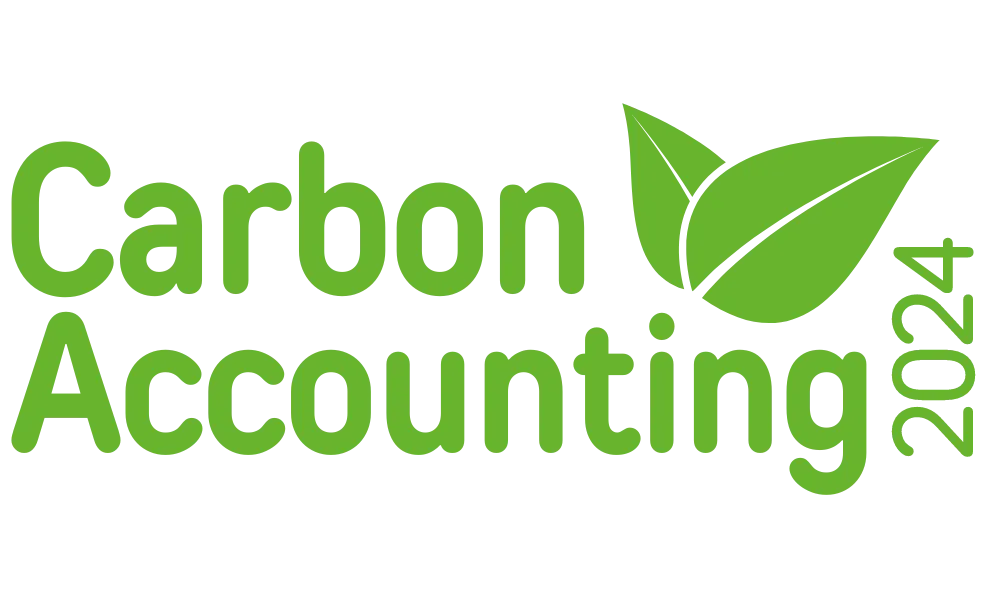Carbon Accounting for Companies
December 10, 2024
08.30
Arrival, Coffee @ Solutions Showcase
Under the EU Green Deal, the EU’s roadmap towards climate neutrality under the European climate law, EU countries must cut greenhouse gas emissions by at least 55% by 2030 with the goal to make climate neutrality by 2050 legally binding. To reach its climate goal, the European Union has come up with an ambitious package of legislation known as Fit for 55 in 2030.
09.15
Richard Bössen - EFRAG (European Financial Reporting Advisory Group)
Senior Manager Digital Reporting
JUNE 1, 2024: ANNUAL REPORTING ON GREENHOUSE GAS EMISSIONS IS REQUIRED
- The Corporate Sustainability Reporting Directive (CSRD) has taken effect on 1 June 2024, requiring some 50,000 companies doing business within the EU to report annually on their past and present greenhouse gas emissions. Beginning on 1 June, those affected will be companies based in the EU that meet two of three conditions: €40 million in revenue, €20 million in assets, or 250 and more employees.
- In addition, non-EU companies that have revenue over €150 million in the EU will also have to comply.
- For many large companies, supply chains form a large part of their environmental footprint. With the CSRD’s reporting requirements, primary environmental data from these impact-heavy suppliers becomes a must-have.
09.45
WHAT CAN WE LEARN FROM A COMPANY’S YEARLY REPORTING ON GREENHOUSE GAS EMISSIONS REPORTING?
The CSRD’s standards mandate more rigorous, transparent carbon accounting practices. This session delves into carbon accounting’s essence and its connection with ESRS requirements. Providing insights into the challenges, opportunities and solutions regarding carbon data and a carbon metrics strategy to get to NetZero.
10.15
SCOPE 1, 2 AND 3 EMISSIONS EXPLAINED
While CO2 emissions scopes might seem confusing at first, they actually help you create a GHG inventory by identifying your total emissions or how much CO2e you emit based on everything it takes for your business to operate. • Scope 1 – direct emissions from sources owned or controlled by a company (“what you burn”), • Scope 2 – indirect emissions from purchased electricity, steam, heat, and cooling (“is energy you buy”), • Scope 3 – all other emissions associated with a company’s activities (“everything beyond that”).
10.35
COFFEE BREAK @ SOLUTIONS SHOWCASE
11.00
SCOPE 3: WHAT QUESTIONS ARE WE TRYING TO ANSWER?
Is Scope 3 well-designed to meet its fundamental purpose: driving corporate actions to reduce, avoid, and remove greenhouse gas emissions? Scope 3 inventories are often seen as an end in and of themselves, yet from a climate perspective, they are only tools—and only useful if they help lead to positive emissions impact. What companies are asked to do regarding value chain emissions is not adequately aligned with what climate science demands. Therefore, greenhouse gas accounting, disclosure, and leadership programs and rules must modernize their approaches to Scope 3. Options include: limiting data collection requirements to seeking actionable, primary data; using proxy data only as a baseline from which the demonstrated impact of emissions-reducing interventions can be credited by target setting and leadership programs; and by fully embracing the use of verified market mechanisms to enable investments in positive emissions impact.
11.45
Kristian Koktvedgaard - Dansk Industri and EFRAG Sustainability Reporting Board member
Head of VAT, Auditing, Accounting and Reporting
PANEL: NET ZERO AND CSRD - NEW REGULATIONS DEMAND ACTION NOW!
This Session comprises an expert carbon accounting panel, discussing how to enable companies to better understand carbon emissions on a granular level, improving business decision-making and helping them meet their net zero targets.
12.30
LUNCH BREAK @ SOLUTIONS SHOWCASE
13.15
UNDERSTANDING THE EMISSIONS PROFILE OF LOGISTICS SERVICES
SFC is an Amsterdam-based NGO (with programs in China and North America), focused on Sustainability in Freight Transport across all modes and end-to-end. Since its inception in 2013, it has created the Global Logistics Emissions Council (GLEC) Framework for emissions accounting in supply chains (converted in 2022 into the Global ISO Standard). Christian provides a practical deep-dive that details how a logistics service provider gets clarity on their Scope 1, Scope 2 and Scope 3 data.
13.45
PRACTICAL CARBON ACCOUNTING SOLUTIONS FOR LOGISTICS
A practical deep-dive in how shippers are building their sustainability strategies to get to NetZero, and how can they be helped with reduction initiatives through procurement strategies.
14.05
HOW LARGE ENTERPRISES CAN MANAGE THE EMISSIONS PROFILES OF THEIR ENTIRE VALUE CHAIN
Scope 3 emissions, also referred to as value chain emissions, often represent the majority of a large enterprise's total greenhouse gas (GHG) emissions. Key is to ensure that there’s a solid Scope 3 strategy based on supplier data and engagement
14.25
PANEL: CARBON FOOTPRINT STRATEGIES AND SOLUTIONS FOR ACCOUNTANTS, CONSULTANTS AND SMALL/MEDIUM-SIZED COMPANIES
Accountants, Consultants and SMEs also need carbon accounting software solutions and a professional carbon footprint management strategy. Using real use-cases, the panel will explain how they can ensure compliance, efficiency and insights as well as the added value of software, and external expertise such as specialised consultants and accountants.
15.10
ALTHOUGH DISCLOSURE OF FINANCED EMISSIONS IS ALREADY MANDATORY IN THE EU, BANKS AND FINANCIAL INSTITUTIONS CAN REDUCE THE EMISSIONS ASSOCIATED WITH THEIR FINANCING AND INVESTMENT ACTIVITIES
Measuring and disclosing the GHG emissions financed by their loans and investments
(portfolio climate impact) is a tangible first step toward building trust that financial institutions are integrating climate change into their core business of providing and allocating capital.
15.30
Tea Break @ Solutions Showcase
15.50
CARBON ACCOUNTING - OPTIMISED FOR THE MANUFACTURING INDUSTRY
For machine manufacturers and automotive OEMs, downstream emissions (and especially the use phase) constitute 90% of their footprint. Let's dive into a use-case to explore how a manufacturer can obtain emission goals on their scope 1-3 by using a TÜV-certified methodology.
16.10
SUPPLIER ENGAGEMENT THAT GETS RESULTS - MEET SUPPLIERS WHERE THEY ARE AT
Companies like CBRE are partnering to engage over 7,000 suppliers and calculate emissions for those without baselines, with the approach gaining CBRE the ranking of No.3 in Barron's list of the 100 most sustainable U.S.-based companies for 2024. We will discuss how to engage suppliers with different maturity levels at scale and how to create a meaningful impact on your company's corporate carbon footprint.
16.30
BEYOND ACCOUNTING: DELIVERING NET-ZERO
70% of transformation efforts at companies fail. Why is that? Join us for an eye-opening keynote session exploring barriers and enablers for transformation and how they apply to net-zero transition programs. We will explore the role of technology, data and people in accelerating Climate Success.
16.50
FROM ROADMAPS TO PROJECTS AND PROGRAMS
Just as a comprehensive bookkeeping software solution is not a guarantee to build a healthy organization, carbon accounting tools do not guarantee a successful decarbonization strategy.
“Keep your eye on the prize!” Make sure your organisation embraces the energy transition and capitalizes on short term (commercial and business) advantages, which galvanize the CEO
17.10
CONCLUDING PANEL DISCUSSION - HOW TO DRIVE INDUSTRY-FOCUSED ACTION TO CREATE AND DEVELOP BROAD ALIGNMENT
Sustainability transformations hinge on data and end-to-end value transparency. The availability and management of accurate, verifiable data are essential to achieving corporate ESG metrics and shared global goals. Companies must not only use tools to record, report, and act on sustainable business data within their operations but also share it across their networks of suppliers and partners to unlock the potential for industry decarbonization at scale.
A highly interactive panel discussion about everything we learned today. Participation by some of the speakers as well as the audience
18.00
KNOWLEDGE & NETWORK DRINKS RECEPTION @ SOLUTIONS SHOWCASE
This gathering encourages professionals to meet and engage with one another to build valuable connections. Featured speakers, experts, business leaders and executives from a broad range of industries can provide valuable - directly relevant - industry knowledge.
Carbondata.eu is a
5295 North initiative
Address:
Krammer 8, 3232 HE
Brielle, The Netherlands
Email address:
Contact us:
© Copyright 2024 | Privacy Policy





















